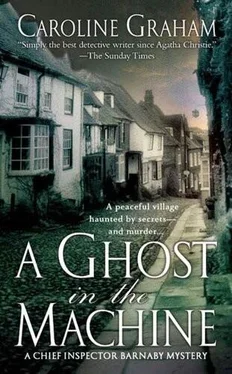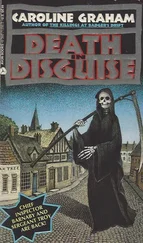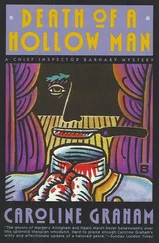“I believed in her. I thought she loved me.”
“Darling—she loves us both as much as she’s able. She’s…Polly.”
Even the sound of her name hurt. How ridiculous. So his eyes had been opened: his illusions shattered. Wasn’t it about time? A man of his age should be past such wistful imaginings. Ordinary common sense could have told him nothing lasts and things are never what they seem. Much better to view life from a clear uncluttered perspective. So it looks suddenly barren and drained of colour – he’d just have to get used to it. And it beat being rammed up to the eyeballs in a cesspit of deceit.
He remembered years ago his aunt saying that human beings are meant to live within certain limits. And if we do not live within these limits everything goes wrong. Had he unknowingly exceeded them in some way? Perhaps by too greedily embracing the happiness that had, at last, appeared to be his lot.
“How do you do it, Kate?”
“It’s my nature.” She knew what he meant. “So I can’t really take the credit.”
“Do you think…this speculation…” The yearning tightened his throat. He could hardly get the word out. “She was actually doing it for us?”
“Of course she was doing it for us.” Kate was amazed. “Who else would she be doing it for?”
“I don’t know. I don’t know anything any more.”
They sat on in silence. The sky became an even darker blue. Pinpricks of silver light appeared.
Kate said, “Look – the stars are coming out.”
And Mallory said, “Not from where I’m sitting.”
Kate went into the house then to prepare supper. It was still and quiet. The kitchen smelled of sweet peas and the coriander Benny had chopped to sprinkle on the carrot soup that was never eaten. On the table was a note.
Dear Mum,
I have gone back to London. I plan to get a job and save as much as I can before September. I shall get a loan for my fees next term and also find a cheaper place to live. Please don’t worry about me. I will send my new address. Thanks for everything.
Love Polly.
By mid-morning the following day the appeal for passengers alighting at Northwick Park off the 6:10 p.m. Metropolitan Line train from Uxbridge on Wednesday, 8 August had been widely circulated. DCI Barnaby of Causton CID, the officer in charge of the case, appeared at the conclusion of the local television news at 1:30. His appeal was also broadcast from radio stations, both commercial and BBC.
“That should smoke him out,” said DS Troy as the chief returned from the press room, rubbing crossly at his face with what looked like a tea towel.
“I can’t stand this stuff. What the hell does it matter if the light catches my nose?”
Sergeant Troy thought, at least they’ve covered up his black eye. He said, “I’ll do it next time, if you like.”
There was an immediate chorus of jeers and “ooohhhs.” Sergeant Troy sneered silently back, noticed the lovely Abby Rose, who had not joined in the mockery, smiling sympathetically, and was struck afresh by her beauty. Having been true to his unconsummated longing for Sergeant Brierly for as long as he could remember Troy had lately noticed a definite coarsening in Audrey’s features, a blurring of that matchless profile. Also, since her promotion to a rank level with his own, she had become overconfident, even a touch sarky. Admiration was definitely off the menu there. Respect likewise.
DCI Barnaby noticed the exchange of looks and hoped things would go no further. Fancying other people was human nature, and the workplace was often a forcing house for an attraction that, denied propinquity, could well die a natural death. The physical and emotional closeness police work often entailed made such situations especially hazardous. Barnaby himself had never been unfaithful, though there had been one or two very close calls. The second so close it had led to a request for a transfer.
Troy was turning away now, giving all his attention to the ringing of Barnaby’s direct line. The DCI stretched out his hand and Troy handed the receiver over.
“Leo Fortune, sir.”
“Mr. Fortune?”
Barnaby listened. Troy watched, trying to read the chief’s reaction. Plenty of the old gravitas, some frowning. Now he was groping around for a pencil.
“That is remarkable. Will you prosecute?…What about the other files?…If you remember I suggested that you should…I am aware that tomorrow’s Saturday…”
There was a bit more along these lines and the conversation ended.
As he hung up Barnaby said, “The girl’s practically emptied the Lawson account.”
“Crikey. What are they going to do about it?”
“Fortune’s not sure. She didn’t break in, did no damage and only took money belonging to herself and her parents.”
“Look bad for the firm if this gets out. Lack of security.”
“Exactly. What amazed him was that all the cash then went on shares that were generally known to be worthless.”
Troy, perching on the chief’s desk, gave a snort of satisfaction. “So much for high-flyers.” He removed himself to be more comfortable in a swivel chair. “How did she break into the account anyway? Aren’t they supposed to have passwords?”
“These were all in medieval French. Brinkley believed this made them incomprehensible to anyone except a specialist scholar and left the disk in an unlocked desk drawer. As for the rest—”
“You think she’s been stealing from other accounts?”
“Don’t know. And won’t know till Monday when the lazy beggars drift back into work.”
“Be fair, Chief. Even money men need a break.”
Barnaby was cross and impatient. Two murders had been committed here. One of a man who thought so well of his staff he had left them his share of the business. And where was this staff when the police needed them? Playing golf, shopping, swimming with the kids, visiting garden centres. Fortune himself was going to a wedding, offering the pitifully lame excuse that the groom was his eldest son.
“Cheer up, sir,” said Sergeant Troy, whose spirits always rose on seeing those of others fall. “It’s not as if it’s urgent.”
During morning service at St. Anselm’s, Benny sat and kneeled and stood and sat again, all the time grappling with the jumbled desolation of her thoughts. She couldn’t seem to sort her emotions out. Loneliness, keen as a knife, was paramount. She had tried to counteract this by flooding her mind with happy memories. Presently, as the vicar droned through his sermon, she was remembering the last time she and Dennis had been together. The turbot he had cooked so beautifully, the delicious chocolate pudding. And how they had talked about being involved with the Celandine Press and what fun it would be.
Now all that was gone. Anger against whoever had so cruelly ended a gentle, harmless existence was forever prowling on the fringe of Benny’s conscience, seeking to get a grip. As a Christian she tried to fight this but the simple, unquestioning faith that had supported her all her life was crumbling. The idea that if you were good and kind and hurt no one God would look after you was plainly a lie. Which left prayers, always her first and last resort in times of trouble, no more than ashes in the mouth.
Now she stood for the final hymn, recited the meaningless words, then stumbled from her pew and up the aisle. Flinching from the vicar’s flabby handshake and warm stare of compassion, Benny made her way to Dennis’s grave. How bare it looked now the wreaths had been removed. How suddenly neglected. She must arrange for a stone. Sensing that people were observing her and wary of clumsy attempts at consolation Benny didn’t linger.
But where was she to go? The obvious place, home, for the first time ever did not appeal. Something had happened at Appleby House. Something wrong, even bad. It had started when Mallory had gone tearing off to London and come back with Polly. The next day she, Benny, had been cutting back the first lupins when Chief Inspector Barnaby had come back. He had taken Polly away, holding her arm as if she might run off. Kate and Mallory went as well.
Читать дальше










